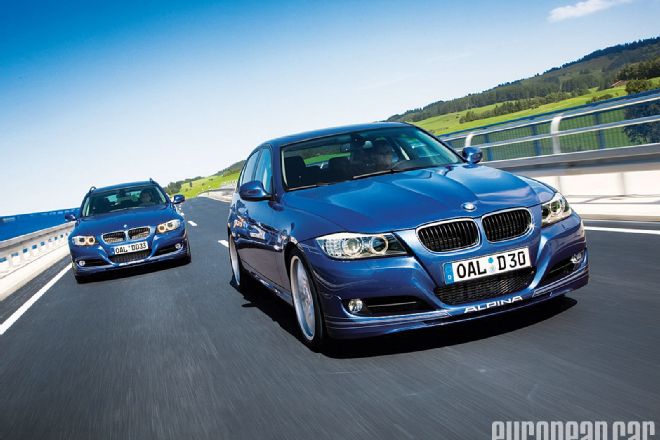VHS or Betamax? Blu-ray or HD-DVD? Sometimes society comes to a fork in the road where it has to choose one form of technology over another. With the examples given here, it's usually the porn industry that makes up our minds for us. But now we have the opportunity to do the right thing for our transportation situation.
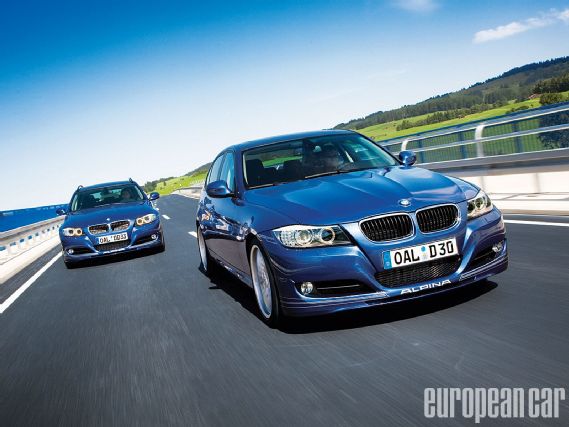 |
Alpina D3 Bi-Turbo Saloon and Touring
|
Alpina D3 Bi-Turbo Saloon and Touring
There's no denying that we need to cut fuel consumption and reduce emissions-for reasons such as global warming, reliance on imports of foreign oil, smog-filled cities, rising prices of crude-even if there are occasional dips, oil will only become more expensive in the long term, just because of supply and demand. So now, right now, is the time for diesel. Imagine never having an Internet, then going straight into fiber-optic broadband access. That's what America can feel like, because the Europeans have taken diesel technology and brought it to such a state of maturity that we can just reap the rewards.
And what rewards they are: better mileage (up to 40 percent less thirsty than a gasoline equivalent), fewer noxious gases, great reliability, and gobs of torque. If anything can wean America off gasoline, it's modern, clean diesel. Fans of European cars are in the vanguard, because the good stuff is all German, from the humble VW Jetta to the massive Audi Q7 TDI, by way of the BMW 335d and Mercedes-Benz Bluetec vehicles. That's just what is available now; the future looks even more promising.
1. Why diesel is better than gasoline
Diesel has a greater energy density. On average, one gallon contains 147,000 BTU, compared with 125,000 BTU in a gallon of gas. It's also less prone to evaporation, an important attribute when storing and transporting.
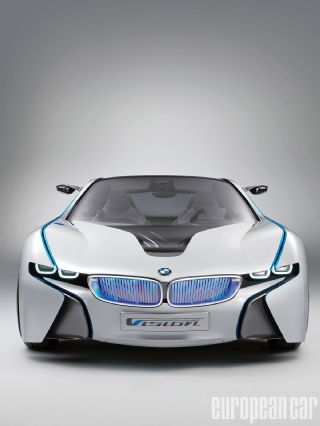 |
BMW Vision Efficient Dynamics Concept
|
BMW Vision Efficient Dynamics Concept
Biodiesel: No trees were impacted, carbonized and left to fossilize for millennia in the making of this product. Scientists are looking into various sources, such as a rare fungus from Patagonia, but fuel from algae seems to be getting most of the attention at the moment. This humble seaweed can be farmed without competing for food resources. And if there's a spill, it wouldn't create much environmental impact-it's biodegradable. As a nice side effect, this fuel might even eliminate the need to deal with Middle Eastern countries that have appalling human rights records.
The United States Department of Energy has calculated that algae-derived biofuel from 15,000 square miles could meet the country's annual gasoline needs. That area is about a seventh of the land given over to corn production. Fuel from algae can even be used for jet engines. Society is accustomed to being mobile and biofuel looks like it can keep things that way, providing the cost can be manageable. In these early days, biodiesel is still expensive to produce, but governments and private companies are funding research into making it a viable commodity.
2. Why Diesel Is Better Than Electric Cars
How long does it take to fill a car's fuel tank? About eight minutes? How long does it take to recharge a Tesla completely? More like eight hours. No one is ever likely to suggest taking an EV on a road trip-not for a long time, at least.
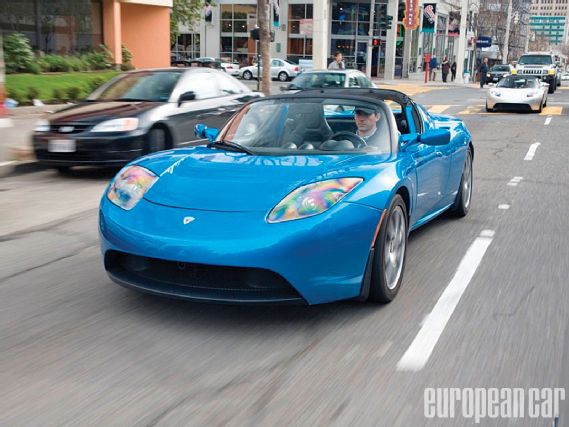 |
Tesla Roadster
|
Tesla Roadster
Diesel engines are renowned for their longevity. It's not unusual for a Mercedes-Benz oil-burner to reach 350,000 miles. Lithium ion battery packs? Not so much. They can only be recharged a finite number of times until they have to be replaced. There is no exact figure, but think about those iPods and laptops that have needed new batteries after a couple of years. The cost of a car-worthy Li-ion pack is around $15,000. And this is still assuming the technology will progress far enough and quickly enough to deal with the problems of heat and exploding cells. Toyota is sticking with nickel metal hydride for its hybrids, likewise Porsche and its Cayenne hybrid, because Li-ion isn't where it needs to be.
3. Why Diesel Is Better Than Hydrogen Fuel Cell Cars
One word: infrastructure. A lot of filling stations already have a diesel pump or two, therefore it wouldn't be much of an issue to have a few more on the forecourt. Good luck trying to find somewhere that dispenses hydrogen. The simple fact is that diesel technology is already here and already accessible.
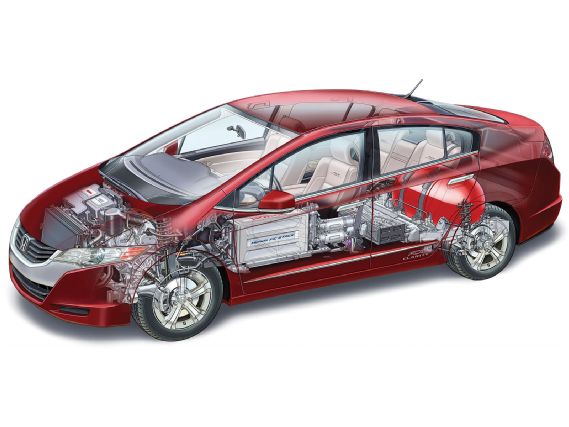 |
Honda FCX
|
Honda FCX
Hydrogen needs to be stored in highly compressed form at low temperatures. Also, since it is not something that occurs naturally, where does hydrogen fuel come from? A lot of it comes from fossil fuels-natural gas and gasoline-or from methane.
There's no denying that vehicles whose only emissions are water vapor would be a good thing, but how long before fuel cell cars are affordable and available? We don't have the luxury of time or the ability to pay for anything like a Honda FCX, which is basically a pleasant runabout that costs $1 million apiece to produce.
4. Why diesel is better than ethanol
Apart from the moral aspect of diverting foodstuffs into fuel production when a shamefully large proportion of the human race is starving (852 million, or 13 percent of the world's population according to the U.N.), there's a cold, hard, technical fact: Corn-based ethanol production takes more energy than it gives out. Yes, some of that energy is sunshine, but there's also natural gas, liquid propane gas, coal, electricity, and diesel to go in there too. To make ethanol with the same amount of energy as 8.5 gallons of gasoline requires the equivalent of 6.3 gallons to come from one or more of those sources. So why use diesel to make ethanol when diesel can already go straight into a car? This cuts out a whole time-, money- and energy-consuming process. And we can drive our kids to school knowing that we haven't taken food out of anyone else's mouth.
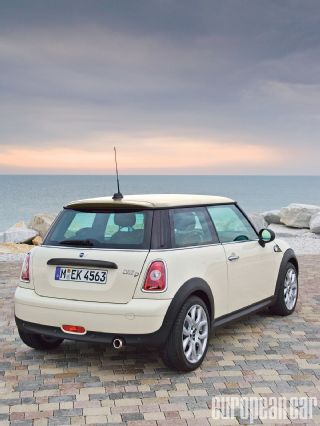 |
MINI One D
|
MINI One D
5. Why Diesel Is Better Than Hybrids
Diesel cars are less complex than hybrids, with fewer things to go wrong. Diesel engines are heavier than their gasoline-chugging counterparts, but not as heavy as all the hybrid paraphernalia thrown in there as well. The life of a battery pack is shorter than that of a diesel engine, so there's the expense of replacing it and disposing of spent cells. Recycling a diesel engine is far more straightforward. No doubt there will be diesel hybrids in the near future for even cleaner, more frugal vehicles. Great and all, but there's still that battery issue.
Fuel consumption for hybrids is often claimed to be in the 50-mpg range. In the real world, that rarely happens. On the other hand, regular european car readers will know that we've often had 44 mpg from our long-term Jetta TDI without even trying. And when did anyone describe a hybrid as a fun drive? The Jetta is nice enough, but there's an intriguing development on the horizon: a diesel MINI. Naturally, there's a version already out in Europe, but BMW is seriously considering bringing something with a new-generation engine over to the U.S. The combination of MINI-type thrills and a possible 60 mpg seems like a no-brainer.
6. Why Diesel Is The Next Frontier For Tuners
For one thing, they like a challenge. Most of the non-engine stuff is pretty much worked out. These guys can almost set up a suspension and design aero appendages in their sleep. So getting more power out of a diesel engine while still preserving its raison d'etre of low emissions and decent economy is something for a tuning house to sink its collective teeth into. At the same time, diesel's superior energy density and higher torque characteristics play into the tuners' hands.
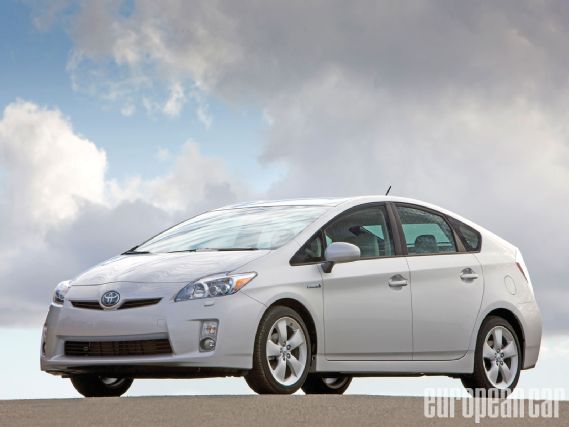 |
Toyota Prius
|
Toyota Prius
Federico Pavoncelli of RD Sport says: "Even though there's still a trade-off, a 15- to 20-percent boost in performance will result in only about two to three percent more fuel being used. It only really becomes apparent when the car is being flogged. A tuned diesel provides phenomenal drivability, performance, and mileage." Even the slightly heavier weight of a diesel engine has little significance. "We use the same front suspension components for a BMW 335d that we'd use for a 335i," says Pavoncelli.
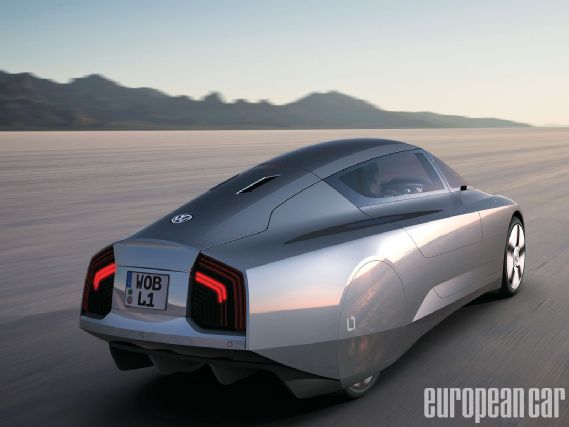 |
Volkswagen L1
|
Volkswagen L1
Alpina's diesel-powered version of the BMW 3 Series, the D3, takes the stock 2.0-liter twin-turbodiesel and gives power a modest bump from 204 to 214 hp. But torque goes from 295 lb-ft to 332 lb-ft. That's a difference that can be felt. Standstill to 60 mph is dispatched in a whisker below seven seconds, yet average fuel consumption is stated at 43.6 mpg.
Brabus has transformed a Mercedes-Benz E300 Bluetec into the D6 Blue (seems that German tuners keep their ingenuity for engineering rather than nomenclature), pushing output from 205 hp to 255 and 398 lb-ft to 450 (kicking in at just 1600 rpm). That's enough grunt to send this 3,800-pound car tanking from zero to 60 mph in 6.8 seconds. Yet emissions are 65 percent better than the figure required by stringent 2011 Euro V standards and average thirst is 38.7 mpg. Brabus is seeing diesel as a growing part of its business. With figures like this, it's easy to see why.
It's no surprise, then, that AMG is also rumored to be developing a diesel super-sedan, having dabbled so successfully in 2002 with the C30 CDI Sport Coupe. Back then, 231 hp and 398 lb-ft was pretty good. Now Mercedes' tuning arm is said to be looking at a C-Class with 500 hp and around 700 lb-ft of torque, ready for 2011. And only a fool would bet against a high-powered diesel version of the new E-Class.
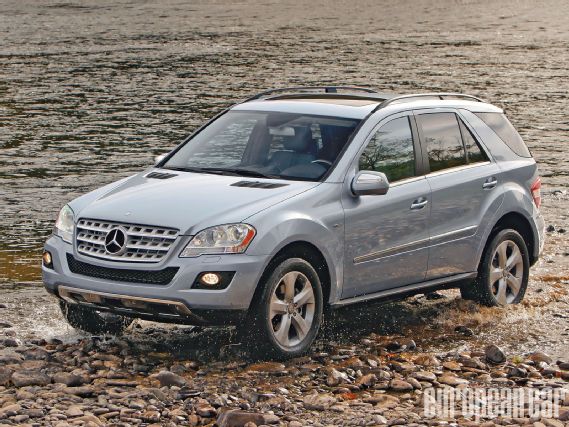 |
Mercedes-Benz ML350 Bluetec
|
Mercedes-Benz ML350 Bluetec
7. Why Diesel Has A Bright Future
Gearheads may barely stifle a yawn when hearing that Volkswagen might be bringing its Polo subcompact to North America, and there's a good chance that some diesel option would be in the cards. Same deal with the Passat CC and Touareg II. But one look at the BMW Vision concept might make them pull up fast.
The full name is Vision EfficientDynamics Concept and, admittedly, the car's complete spec does include the h-word in there with a 1.5-liter, three-cylinder turbodiesel and all-wheel drive. But BMW is claiming a zero-to-60 mph time of 4.8 seconds and 62.2 mpg. Although this has little chance of going into production, it shows how far diesel has come from powering farm machinery to being uppermost in the minds of those who will shape the world of mobility.
It's not just happening at BMW. Check out the VW L1. This super-sleek two-seater is being hailed by its makers as the most efficient car in the world. An 800cc twin-cylinder TDI engine is augmented (yet again) by an electric motor to produce a top speed of 100 mph. Meanwhile, fuel consumption is quoted at 157.8 mpg. There's talk of it being available in 2013.
8. Why The Wagon Is Already Rolling
Volvo and Saab plan on bringing diesel models to the States; there might also be a Smart diesel. According to J.D. Power, sales of diesels will triple between now and 2015. Diesel sales in Europe already account for over half of all new cars sold.
Maybe the industry will fragment, people might start using a whole range of fuels, vehicles and propulsion systems. But if we want to make a smart choice with our next car purchase, diesel has to be considered. And Mr. Buffett, it's time to sell that spark plug company stock, if you still have any.

